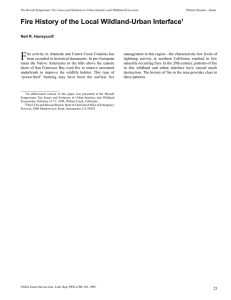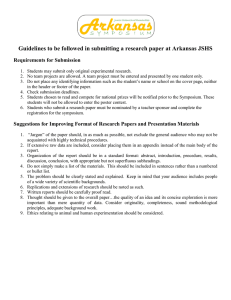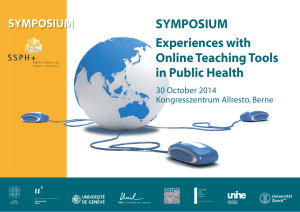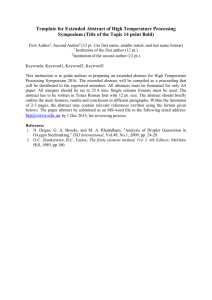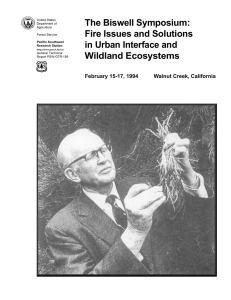U.S. Forest Service Pacific Southwest Research Station
advertisement
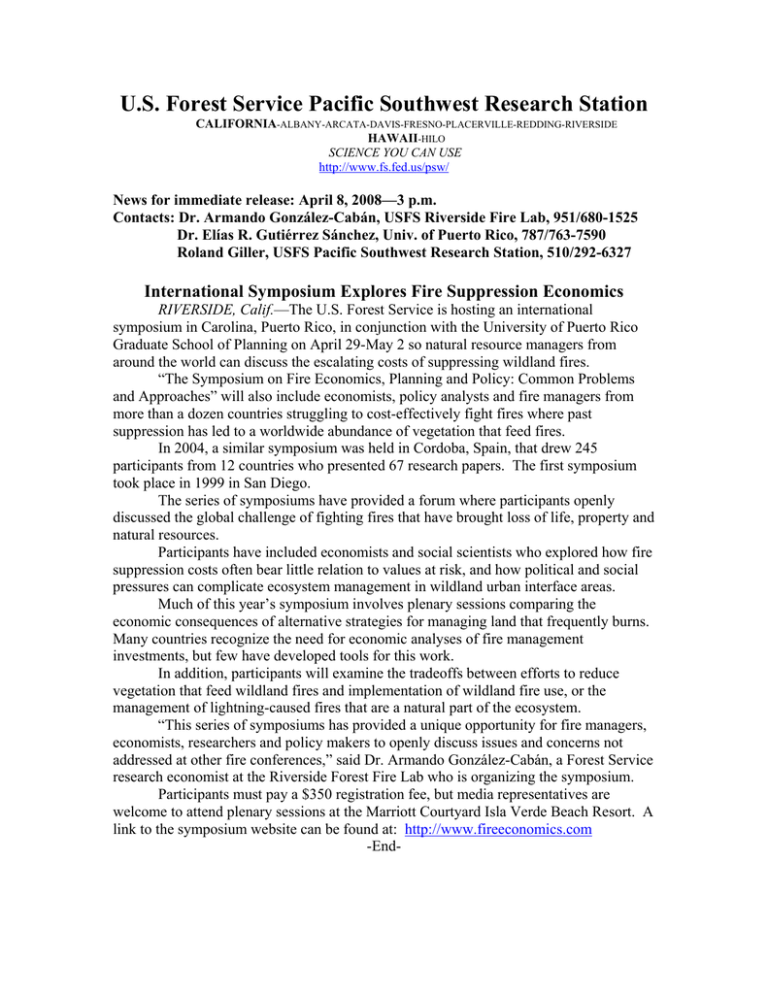
U.S. Forest Service Pacific Southwest Research Station CALIFORNIA-ALBANY-ARCATA-DAVIS-FRESNO-PLACERVILLE-REDDING-RIVERSIDE HAWAII-HILO SCIENCE YOU CAN USE http://www.fs.fed.us/psw/ News for immediate release: April 8, 2008—3 p.m. Contacts: Dr. Armando González-Cabán, USFS Riverside Fire Lab, 951/680-1525 Dr. Elías R. Gutiérrez Sánchez, Univ. of Puerto Rico, 787/763-7590 Roland Giller, USFS Pacific Southwest Research Station, 510/292-6327 International Symposium Explores Fire Suppression Economics RIVERSIDE, Calif.—The U.S. Forest Service is hosting an international symposium in Carolina, Puerto Rico, in conjunction with the University of Puerto Rico Graduate School of Planning on April 29-May 2 so natural resource managers from around the world can discuss the escalating costs of suppressing wildland fires. “The Symposium on Fire Economics, Planning and Policy: Common Problems and Approaches” will also include economists, policy analysts and fire managers from more than a dozen countries struggling to cost-effectively fight fires where past suppression has led to a worldwide abundance of vegetation that feed fires. In 2004, a similar symposium was held in Cordoba, Spain, that drew 245 participants from 12 countries who presented 67 research papers. The first symposium took place in 1999 in San Diego. The series of symposiums have provided a forum where participants openly discussed the global challenge of fighting fires that have brought loss of life, property and natural resources. Participants have included economists and social scientists who explored how fire suppression costs often bear little relation to values at risk, and how political and social pressures can complicate ecosystem management in wildland urban interface areas. Much of this year’s symposium involves plenary sessions comparing the economic consequences of alternative strategies for managing land that frequently burns. Many countries recognize the need for economic analyses of fire management investments, but few have developed tools for this work. In addition, participants will examine the tradeoffs between efforts to reduce vegetation that feed wildland fires and implementation of wildland fire use, or the management of lightning-caused fires that are a natural part of the ecosystem. “This series of symposiums has provided a unique opportunity for fire managers, economists, researchers and policy makers to openly discuss issues and concerns not addressed at other fire conferences,” said Dr. Armando González-Cabán, a Forest Service research economist at the Riverside Forest Fire Lab who is organizing the symposium. Participants must pay a $350 registration fee, but media representatives are welcome to attend plenary sessions at the Marriott Courtyard Isla Verde Beach Resort. A link to the symposium website can be found at: http://www.fireeconomics.com -End-
